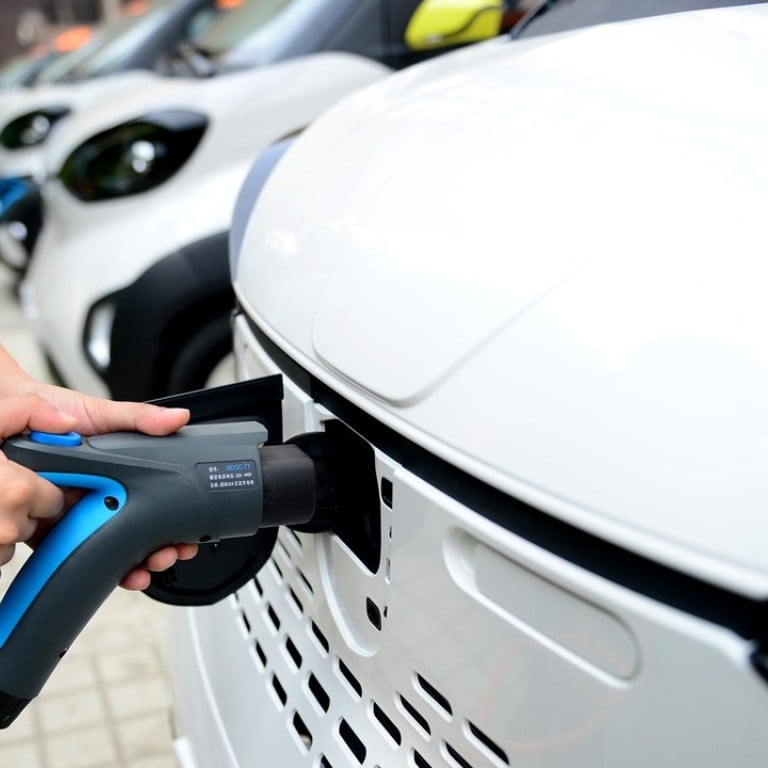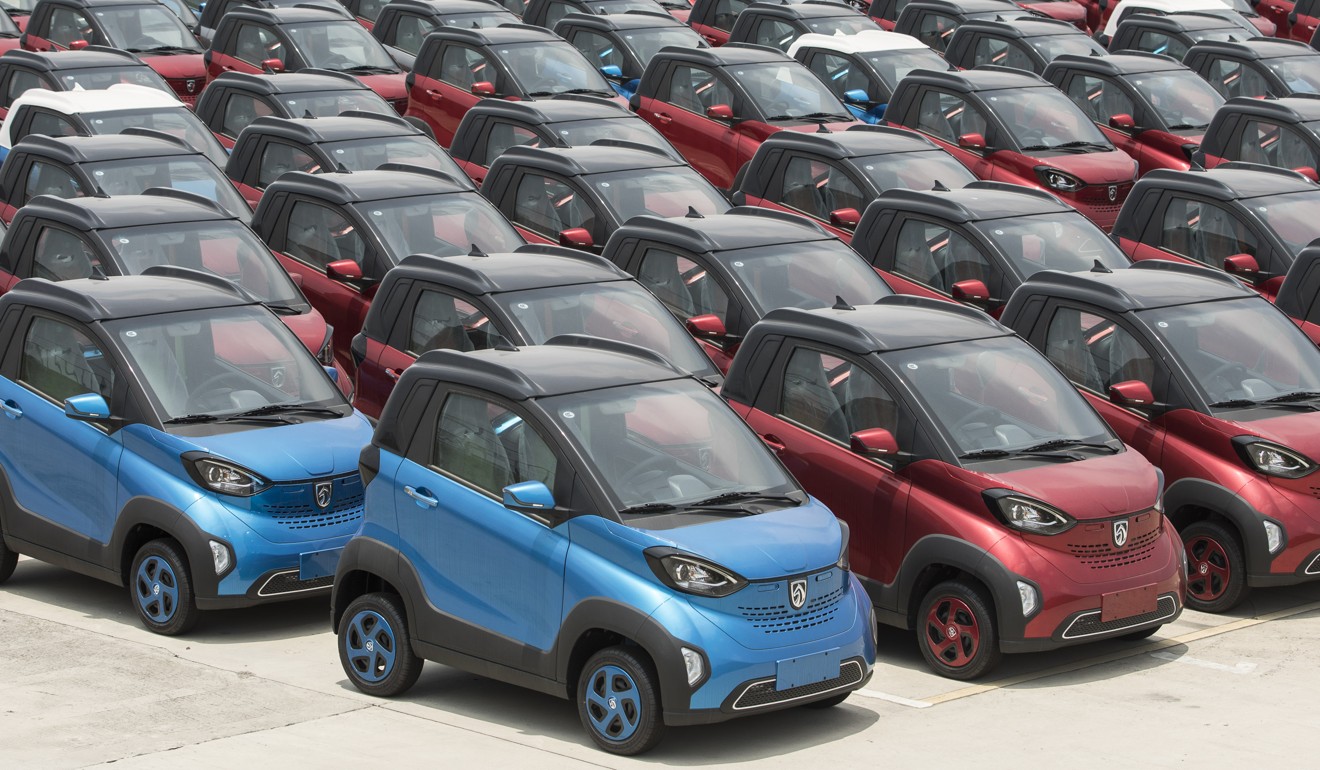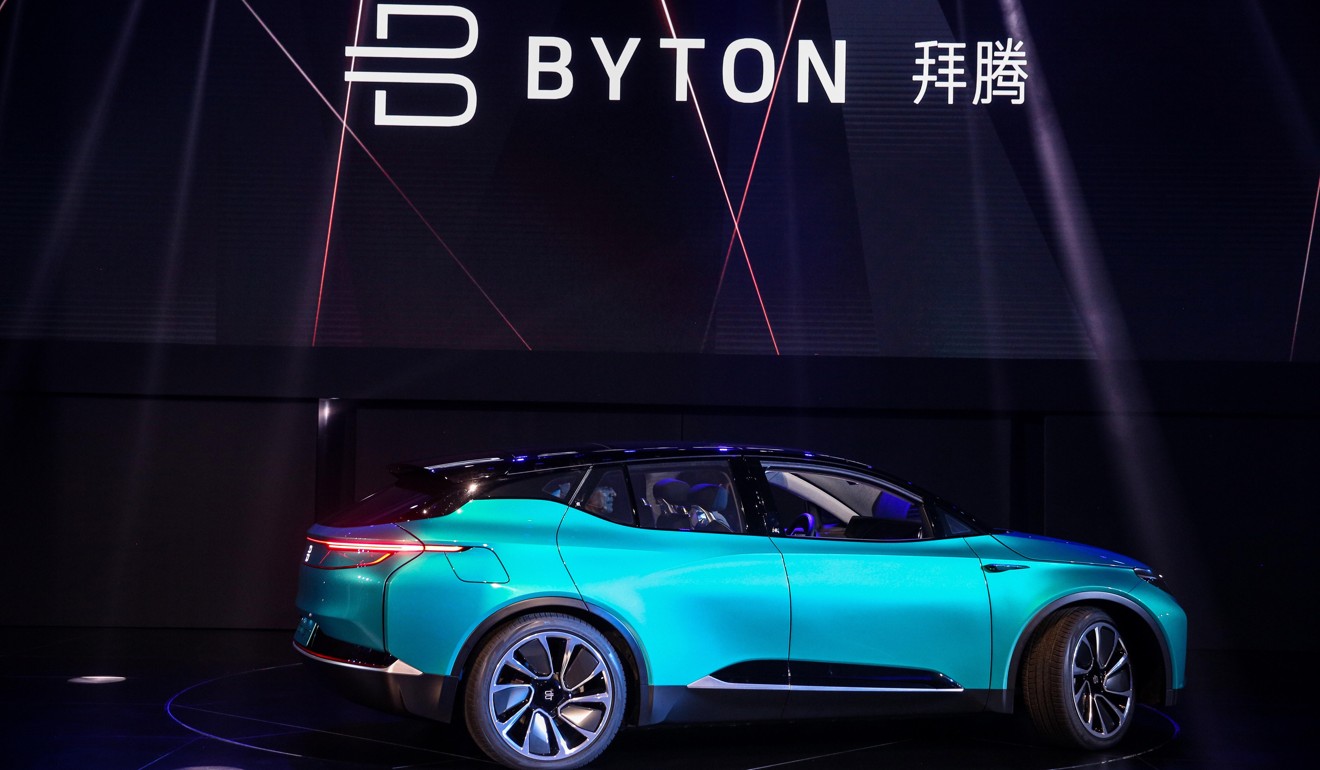
Venture capital investment in China’s electric car market accelerates, says KPMG
- Trend expected to continue, as Chinese investors also look abroad for automotive tech opportunities, amid Beijing’s plan to gear up electric-vehicle sales by 2020
New energy vehicle and automotive ancillary service projects have attracted heavy venture capital (VC) investment into China over the past six months, bolstering valuations of some automotive start-ups into unicorn status, or a private company valued at over US$1 billion, according to a new KPMG report.
In notable deals highlighted, US$596 million was raised by Guangzhou-based Xpeng in a series-B funding round, led by Primavera Capital, Morningside Venture Capital and others, creating a new unicorn out of a company merely four years old.
Another was completed by Tuhu, an online platform for automobile services and products, which raised US$450 million in series-E round in September, KPMG revealed in its “Venture Pulse” study released Thursday which outlines global VC activities in the third quarter.
Investors in Tuhu included Tencent Investment, Sequoia Capital, Carlyle Group.
Chinese tech giants – including ride hailing app unicorn Didi Chuxing, Baidu and Alibaba – have been active investors in autonomous vehicle companies as well as forging partnerships with original equipment manufacturers (OEM) to lead the country’s gradual evolution into the electric car market.

In September, Beijing municipal government issued licence plates to seven companies to test autonomous vehicle technology.
“Autotech continues to attract venture capital interest in China,” Philip Ng, head of technology of KPMG China wrote in the report, adding investors were also interested in battery power and charging infrastructure.
“And one of the most attractive areas of investment over the past two quarters has been new energy-powered vehicles.”
Together with the US$500 million invested in Didi Chuxing by US travel firm Booking Holdings in July, investments in China’s automotive and electric car sector accounted for half the world’s 10 biggest VC financing deals during the quarter, KPMG said.
China was also a key driver of VC investments into the region, with the stand-out deal worth US$1 billion by cryptocurrency mining gear maker Bitmain, although its business is unrelated with electric vehicle technology, a sector which received strong support from central government.

The Chinese government has said it wants new energy vehicles to account for 12 per cent of total annual car sales by 2020.
KPMG expects such strong levels of interest to continue over the rest of the year, citing other companies such as Nanjing-headquartered electric car start-up Byton and Beijing-based Singulato Motors, which raised about US$500 million and US$474 million, respectively, during the second quarter.
Chinese investors are also putting money into electric car start-ups outside China.
This week, Eight Roads Ventures, the proprietary venture investment arm of Fidelity International, and Nio Capital, the tech investment arm affiliated with listed Chinese electric vehicle company Nio, co-led a US$30 million series-A investment into Innovusion, a Silicon Valley-based developer of LiDAR electric-car technology. F-Prime Capital in the US also took part in the round.
LiDAR stands for light detection and ranging, the sensor technology that allows self-driving cars to detect and measure the impact of objects on the road.

